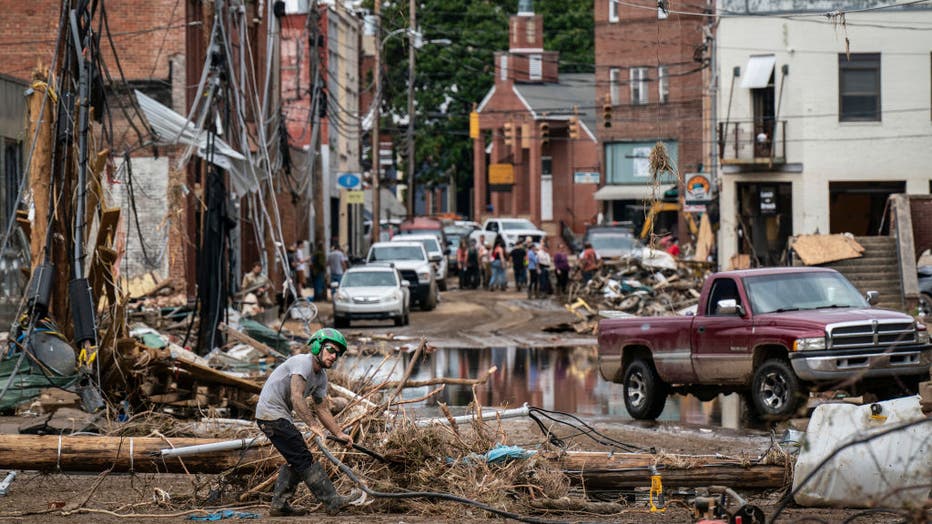US storm deaths can climb for years after storms, reaching thousands, report finds

North Carolina disaster relief following Hurricane Helene
Hurricane Helene recovery continues across the southeastern portion of the United States.
A new report suggests that the death toll from hurricanes and tropical storms in the U.S. can still climb into the thousands up to 15 years after a storm hits.
The report was published earlier this month in Nature.
Stanford University researchers said a storm can indirectly cause between 7, 000 and 11,000 deaths. They believe that tropical storms in the U.S. since 1930 have been responsible for between 3.6 million and 5.2 million deaths. The toll is higher than the deaths from motor vehicle accidents, infectious diseases, or battle deaths in wars during the same period.
The study said that researchers are continuing to assess why storm-related deaths can continue to climb for years, including looking at economic and health factors.

Workers, community members, and business owners clean up debris in the aftermath of Hurricane Helene in Marshall, North Carolina on Monday, Sept. 30, 2024. (Photo by Jabin Botsford/The Washington Post via Getty Images)
Researchers add the government only records the deaths of people who were killed during a storm. Statistics show on average 24 people are killed during a storm, including drowning or some other type of drama.
"In any given month, people are dying earlier than they would have if the storm hadn’t hit their community," the study's author Solomon Hsiang said in a news release. "A big storm will hit, and there’s all these cascades of effects where cities are rebuilding or households are displaced or social networks are broken. These cascades have serious consequences for public health."
Researchers said they based their estimates after analyzing data from more than 500 tropical cyclones that hit the Atlantic and Gulf coasts from 1930 to 2015. They also looked at the number of deaths of various populations in each state before and after each storm.
RELATED: Bay Area doctor impacted by Hurricane Helene uses social media to help others with flooded homes
The study suggests that hurricanes are the most responsible for storm-related deaths in the U.S. Researchers said that more than 3 in 100 deaths in the U.S. are related to tropical cyclones, where a Black individual is three times more likely to die after a hurricane than a white individual. Researchers attribute the discrepancy to concerns that Black communities have expressed for many years regarding unequal treatment after natural disasters.

Hurricane Helene aftermath: recovery in Georgia
The death toll in Georgia due to Hurricane Helene has risen to 33, with a total of nearly 200 fatalities across the South.
Researchers hope their findings could spark governmental and financial decisions about climate change, building coastal climate resilience, and improving disaster management.
"With climate change, we expect that tropical cyclones are going to potentially become more hazardous, more damaging, and they’re going to change who they hit," researcher Rachel Young said.

